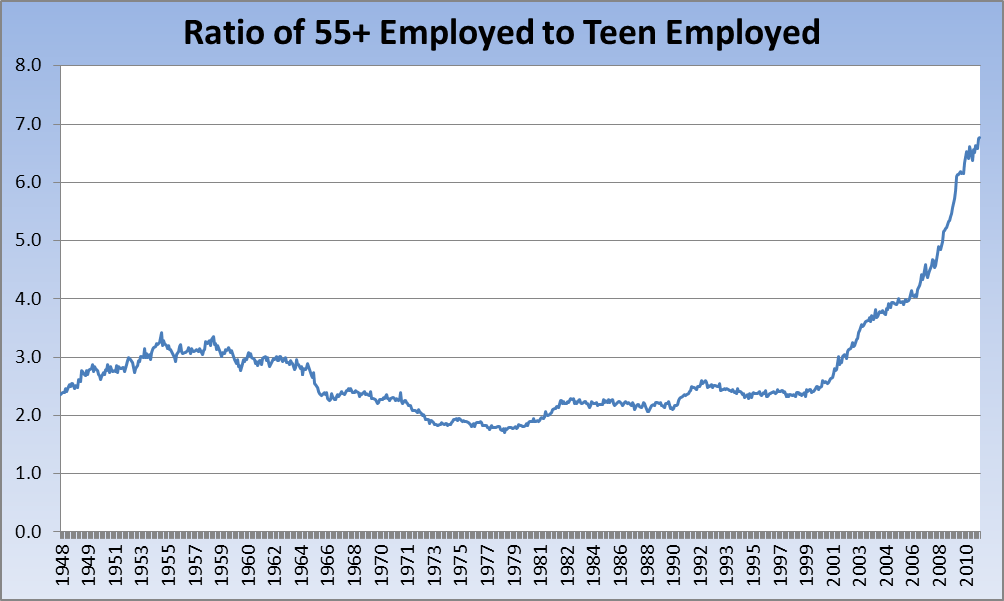Here’s the ratio of 55+ Employed to Teen Employed. You may notice somethin’ happenin’ here, what it is is exactly clear — in 2001, the exact year referenced by the Journal, the first of the boomers (born in 1946) turned 55. The rest is history:
Women in the Netherlands work less than men, have lesser titles, and have a big gender pay gap — and they love it.
Though the Netherlands is consistently ranked in the top five countries for women, less than 10 percent of women here are employed full-time. And they like it this way.
Incentives to nudge women into full-time work have consistently failed. Less than 4 percent of Dutch women wish they had more working hours or increased responsibility in the workplace, and most refuse extended hours even when the opportunity for advancement arises.
Ever more companies are realising that autonomy isn't the opposite of accountability – it's the pathway to it. "Rules and policies and regulations and stipulations are innovation killers. People do their best work when they're unencumbered," says Steve Swasey, Netflix's vice-president for corporate communication. "If you're spending a lot of time accounting for the time you're spending, that's time you're not innovating."
The same goes for expenses. Employees typically don't need to get approval to spend money on entertainment, travel, or gifts. Instead, the guidance is simpler: act in Netflix's best interest. It sounds delightfully adult. And it is - in every regard. People who don't produce are shown the door. "Adequate performance," the company says, "gets a generous severance package."
The idea is that freedom and responsibility, long considered fundamentally incompatible, actually go together quite well.
